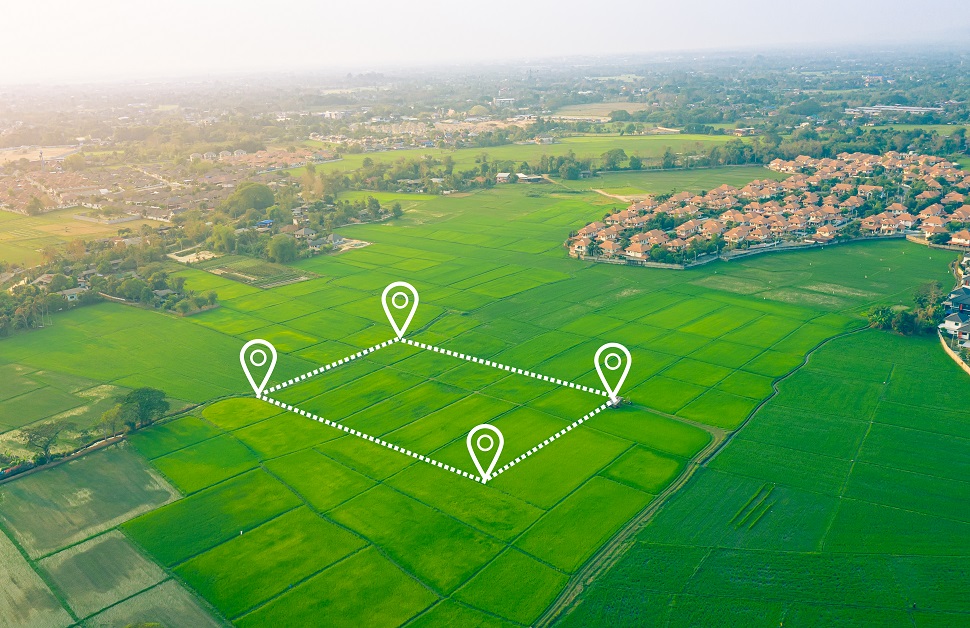
Whether you’re acquiring a plot of land for a self-build project to construct your own home worth the effort from scratch, land development project for relevant properties (commercial or residential), farming, or as a long-term investment in a high-value area, purchasing land for sale carries multiple benefits.
For example, with no property on the site to deal with, potential issues with foundations, electricals and plumbing are entirely eliminated, and providing the site isn’t in a volatile area, the land shouldn’t depreciate even if you don’t do anything with it for a prolonged period of time.
Also, unlike purchasing a pre-made building, you wouldn’t have to deal with making changes to existing infrastructure if the property type isn’t fit for purpose.
Get Your Free Quote
Do you need a quote for ecology surveys, tree surveys, flood risk, contaminated land or biodiversity net gain? Contact us for your free quote.
For anyone that hasn’t bought land before, the process may seem overly complicated, and even the task of searching for land to buy could look like a completely different language.
Even at this point, you may be wondering if the process of finding an opportunity to acquire land would be done using an estate agents or another form of appointed representative, or whether it takes a completely different approach.
The good news is that, in many circumstances, the land buying process is distinctly simpler than choosing to buy and sell property, and finding sale for sale is relatively easy as long as you know where to look, what you would like, and what you are looking for.
In an effort to help anyone that is currently considering buying land, this guide will provide expert guidance, as well as covering key factors in the process.

How to Find Land for Sale
When it comes to the first step of targeting rural plots of land available for sale that you could consider buying, it can be difficult to know where to start your search, even if you are fully aware of what you would like in terms of your desirable plot of land.
Prior to looking for suitable plots of land, it is important that you set out your specifications clearly, regardless of whether you are putting your trust in estate agents or another appointed representative that are looking for plots of land or properties matching your criteria, or carrying out the search independently. For example, a primary consideration would be to gauge the size, location and purpose of the plot of land you’re searching for.
Below, we offer advice on identifying cheap plots of land and list questions you will need to ask as you make the final decision.
How to Find Cheap Land
If you plan to buy land with the intention of making a clever investment and turning a profit in months or possibly even years later, it would be fair to assume that finding cheap land that holds value or the potential to grow in value would be your top priority.
As a starting point, it would be advisable to identify the area you would like to buy land in. You can then speak to estate agents and the corresponding local council, registering your interest in any available plots of land now or in the future.
By doing this, you can rendezvous with estate agents and council members that oversee the area you’re looking to buy land in, increasing your chances of beating other people to desirable plots of land for building new homes or staging other valuable developments.
Another method would be through attending an auction and attempting to obtain a plot of land that is being sold cheaply. Alternatively, you could actively invest in land that is situated in an area with a low average plot price.
With the location naturally playing a role in the decision making process, the range of price based on the area can be severely impacted, with the guide price range of specific areas of North, West, East and South England varying distinctly.
But as it would be unlikely for sites in areas with a consistently low price range to significantly grow in value, it could be more worthwhile to invest in an area that holds a higher projected value and use the site as the basis for your development project.

Even if it isn’t necessarily the area you would have chosen based on your original price range, if the previously rural piece of land was turned into a set of new homes, such as rented or mortgaged detached, semi-detached or terrace residential properties, for example, it could be a sensible investment due to the ongoing interest in the area.
Investing in cheap land can produce an opportunity to acquire land to turn a profit. However, it is important that you are aware of the potential shortfalls. For instance, the guide price of the plot of land will be based on location, size, potential and classification, as well as the type of land.
As such, if you are buying land for building commercial or residential properties – or with the intention of selling it via an estate agents so other people can utilise the land for these purposes – it will be more expensive than agricultural land.
Likewise, the process of preparing the land for building commercial or residential properties could be costly and time-consuming, creating a hindrance for yourself, whoever buys the land from you or, if you decide to sell the land through an appointment representative such as an estate agents or any other characters remaining within the process, whichever company or website you opt for.
How to Find Out if Land is For Sale
Although rare, some people buy land after coming across a suitable plot and enquiring about its availability. In some circumstances, it may be acceptable to speak to the owner of the land directly or simply find it by searching on the internet. However, if these methods aren’t possible or you don’t feel comfortable approaching the land owner informally, you can check the HM Land Registry.
Since 1993, the registry has held the details and information of the majority of plots of land and properties sold and registered in England and Wales, enabling would-be landowners to see the current status of land they are considering investing in.

Where to Search for Land
More commonly, people that are looking to buy land aren’t sure of the plot they would like to purchase. But while it has often been difficult to search for available land – particularly as, unlike with buying new homes, not all estate agents provide land listings – you can actually look through every current listing within specific areas on the Addland website.
Additionally, it can be a useful hub of information for other matters on buying and selling land including free valuation advice and helpful links to support your endeavour. Simply enter in the ideal location and the maximum and minimum price range and size, and you can see all of the rural and development plots within those areas.
The results are then displayed in an accurate map of the UK, allowing you to see exactly where available plots of land are and broaden your search using specific filters if there aren’t any within the chosen area.
What Questions to Ask When Buying Land
Newcomers to buying land are likely to be unaware of the types of questions to ask both themselves and the person they’re buying the land from. In terms of the questions you ask yourself, it is crucial that you outline what exactly you would like the land for, what sort of land you require before searching for suitable plots.
When you reach a point where you are speaking to the current landowner of a desirable plot, you should keep several core questions in your mind to avoid problems further down the line.

Questions to Ask the Current Landowner:
- Are septic tanks or wells present on the land?
- Are there any existing issues with the land?
- Are you selling through an appointed representative such as an estate agents or independently?
- If any existing infrastructure is on the plot, what property type is it?
- Is there a specific guide price on the land?
- Is planning permission in place?
- If planning permission is in place, is it outline consent or detailed planning permission?
- Is the land connected to electricity, sewerage and water?
- What are the access rights?
- What are the conditions of the ground?
- What minimum price would you be willing to sell for?
- Why is the owner looking to sell the land?
Process of Buying Land
Even if you have managed to find an opportunity to acquire the ideal piece of land for your development project, the process of buying it can be complicated, especially if it is something you haven’t done before.
For anyone that has registered a mortgage on a residential property in the past, the confusion and stress that naturally arises through dealing with the seller of the property you are looking to buy, the buyer of your current property and both estate agents and the bank can be overwhelming.
Although similar in many ways, the process of buying land is different to applying for a mortgage on an existing property type, and in some cases, the involvement of estate agents and other stakeholders is, if not entirely removed, significantly minimised.

In an effort to benefit anyone that is new to buying land, the below section explains each step in thorough detail.
Land Financing
One of the concerning factors for anyone that is new to buying land is how the purchase is financed and whether the process differs from that of getting a mortgage on an existing property.
In place of a normal mortgage, you will need a land mortgage, and it does pose potential issues as, unlike a mortgage to buy properties, there won’t be a physical building to act as collateral.
Factors to Consider Before Applying for a Land Mortgage
Prior to applying for a land mortgage, you will need to account for a handful of core considerations.
Firstly, you should outline what the land purchase will entail by organising a professional survey. You can then use the registered surveyor’s report to inform the lender about boundaries, the situation in regards to electricity, sewerage and water, and other details and information such as potential restrictions and zoning.
At this point, it would be advisable to get in touch with the local planning department and enquire about any nearby developments planned for the future. If, for instance, a set of new homes within a residential estate, motorway or park were set to be built down the street in the next few years, it could affect the value of your land and how much it is worth or compromise your plans.
Another important consideration would be the intended purpose of the land and whether it could impact the cost of the land mortgage. As the purpose of the land affects the bank’s risk exposure, the deposit and interest rates will alter, making the land mortgage more expensive. For example, if a plot of land already had a building present, that would be perceived as tangible collateral.
However, if the plot of land only has a proposed construction, there are many different variables that could delay or entirely ruin the process of building new properties, making the lender far less confident. Therefore, a speculative investment on a plot of land with no specific plans for development would give the lender the least amount of confidence as there would be no collateral whatsoever.
Although it wouldn’t be impossible to have a land mortgage application accepted for any of these three situations, the cost would be far greater, with the minimum deposit for a land mortgage set at around 30%.
The deposit amount could also be significantly higher depending on the size of land and type of mortgage, and not all lenders offer a land mortgage service, so you may be limited with who you can turn to.
Land Mortgage Financing Options
In the UK, there are several options for land mortgages, with each option based on the intended purpose of the plot of land. Land mortgage types include:
Agricultural mortgage
- For farms or other forms of land utilised as rural properties for keeping animals or growing produce
Commercial mortgage
- For all forms of commercial property development, including residential housing, shops or other forms of commercial property
Self-build mortgage
- For projects that involve the development of a new property – often for residential use on self-built houses or flats for developers to create their own home, or commercial use on private company buildings – on a plot of land that is currently empty
Woodland mortgage
- For rural land that is being used as a private sanctuary or a long-term investment, either as land or to house rural properties
Alongside a suitable land mortgage, you may also be obligated to pay stamp duty land tax (SDLT).
What is Land Surveying?
Often conducted prior to a development, land surveying is the process of mapping out the shape and boundaries on a plot of land. Using specialist equipment, a qualified and registered surveyor will come to the site and run a series of tests on the land.
While there are different types of land survey, a topographical survey would be advisable as it is more extensive and uncovers details of natural and man-made features on the site.
Finding a Surveyor
You’ll need to hire a land surveyor when you’re buying or building on land so they can conduct a land survey. A land survey will be able to inform you of any potential issues or legal disputes before you buy and build. To find a surveyor you can trust, make sure you check their accreditations, reviews and the services they can offer.
Land for Sale Near Me
Assuming you’ve covered all of the factors listed above, you should be in a position where you can begin to search for available plots of land in certain locations across the UK. At this point, it would be worth noting that the average cost of land varies from region to region and country to country, potentially affecting the price you pay for land and likely profit margins further down the line.
You may decide to search for plots of land in person, online or using an estate agents that offer the flexibility to identify available plots of land as easily as you might target new homes or a commercial property.
As it is rare that estate agents with a focus on property management will offer this service or feature, however, you may be required to refer to businesses that specialise in buying and selling land. Depending on the specific development project you are planning, the cost and availability of the desirable plot of land will vary based on size and location.
As previously mentioned, if you would like help to find available plots of land in your area or any other specific area you have pinpointed in a clear and concise way, you can do this by using the Addlands land search feature and applying the relevant filters.
You can then identify suitable plots of land based on your own minimum price, maximum price and the location of your choice. Likewise, Addlands is a trusted company that offer a useful service for buying land, with helpful links and free valuation advice on their company website to remove unnecessary hassle.

Whether you are early in the process of finding a suitable plot of land, or even if you have already acquired a plot of land, it is likely that you will need to arrange professional assessments to progress to future stages of your project.
If you would like to book a topographical survey or another applicable survey with Arbtech such as a tree survey for woodland areas or a protected species survey if you have reason to believe that animal habitats are present, contact us and we will give you a free quote based on the size of your land and development, and the types of surveys you need or would like.





